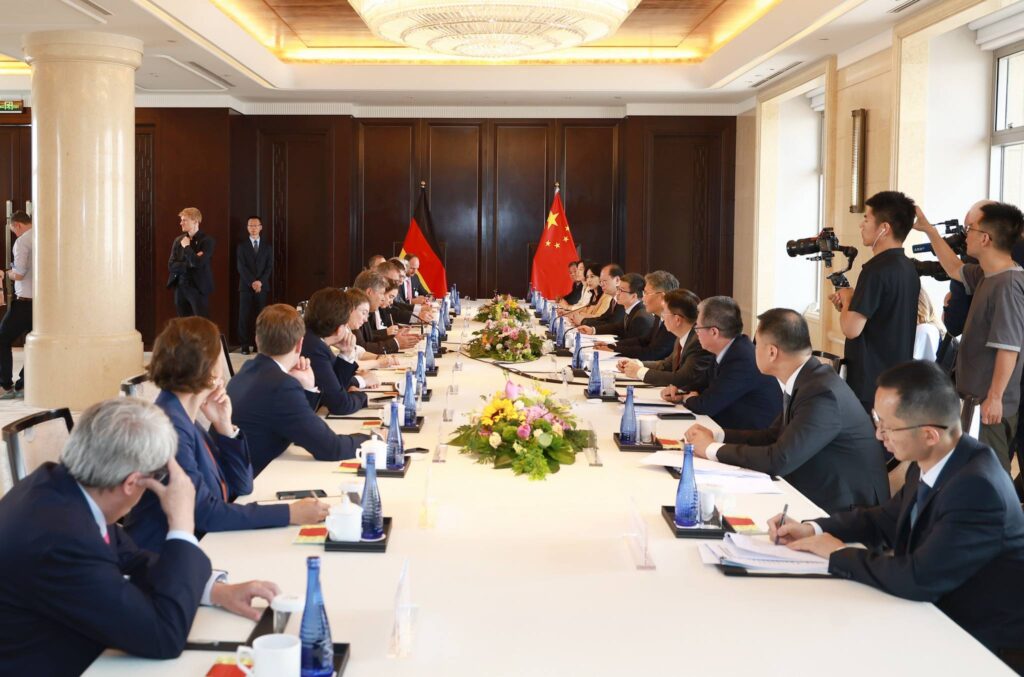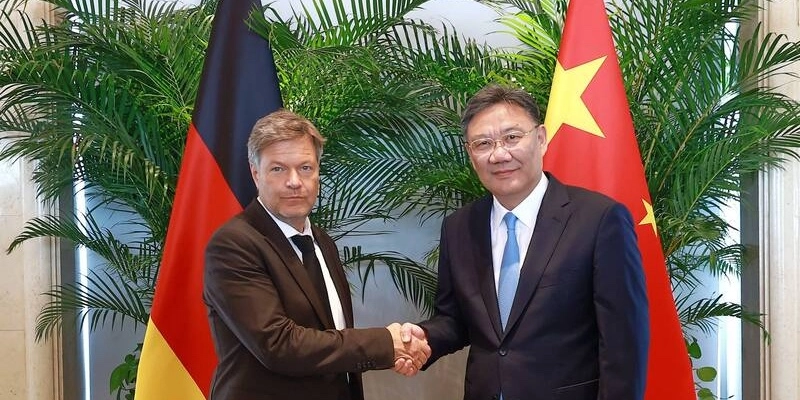Recently, the European Union (EU) announced its intention to increase tariffs on electric vehicles (EVs) imported from China by up to 38.1 per cent.
This measure, which could come into effect on the 4th of July, has faced strong opposition from Germany and has triggered a series of negotiations and discussions between the two continents.
In this context, Gustavo Franco, Managing Partner of EV Insights, tells Mobility Portal Europe that “in the short term, this could favour European manufacturers”.
“There will be a conjunction of interesting factors where the consumer who was planning to buy a Chinese vehicle will now opt for a European brand, as the former will be more expensive, reinforcing the political message of supporting the domestic industry,” he indicates.

However, he adds: “We will have to see if this tax hike also justifies and finances the return of subsidies.”
In this sense, he highlights that he has not found anyone in the automotive sector who considers the tax hike on EVs imported from China necessary.
Especially when considering the Germans.
That is why the German Minister of Economy and Vice Chancellor, Robert Habeck, decided to travel to the Asian country to calm tensions and negotiate a solution.
During his three-day stay, he met with senior Chinese officials, including Wang Wentao, Minister of Commerce, and Zheng Shanjie, Chairman of the National Development and Reform Commission of China.
Highlighting that the investigation will continue until the 2nd of November, when the definitive tariffs could be imposed, the politician said:
“This opens a phase where negotiations are possible, discussions are important, and dialogue is necessary.”
Not only that, but he emphasized that the taxes proposed by the EU are not punitive.
The minister said that the European Commission had examined in detail for nine months whether companies from China had unfairly benefited from subsidies.
On the contrary, he argues that the financial aid seeks to offset the unfair competitive advantages obtained by Asian manufacturers thanks to subsidies from the Beijing government.
According to a report recently published by the Center for Strategic and International Studies (CSIS), the Xi Jinping government subsidized Chinese car manufacturers with more than 215 billion euros.
For what purpose? To accelerate their expansion and transformation plans towards electric mobility between 2009 and 2023.
The document admits that the calculations are “very conservative” since they do not include some aid programs undertaken by local governments, such as those of Shanghai and Shenzhen.
Therefore, the CSIS argues that some trading partners of the Asian country, such as the United States and the EU, could denounce more than 15 years of sustained regulatory and financial support for Chinese manufacturers.
Returning to the meeting in Shanghai, the German Vice Chancellor affirmed his conviction in open markets, emphasizing that these require conditions of equality.
“Subsidies that are proven to be intended to increase the competitive advantages of exporting companies cannot be accepted,” he stressed.

On the other side of the table, Zheng Shanjie responded: “We will do our utmost to protect Chinese companies.”
And he reminded Habeck that he expects Germany to demonstrate its leadership within the EU and “do the right thing.”
At the same time, the Chinese Ministry of Commerce has threatened to file a lawsuit with the World Trade Organization (WTO) “to firmly defend its legitimate rights and interests.”
Therefore, Habeck expressed that the German government is “deeply concerned” about the EU’s investigation, as it could have a negative impact on Europe’s green transition.
As well as adversely affecting the interests of consumers and German car manufacturers in China, who could be harmed.
“In the current situation, imposing tariffs is the worst means, which will trigger a vicious circle of increasing trade frictions,” was heard in the meeting.
Meanwhile, in Europe, opinions on tariffs are divided.
In the automotive industry, there is a fundamental concern related to the considerable dependence on sales in the Chinese market, which could result in substantial losses for European car manufacturers.
On the other hand, according to Gustavo Franco, hardware firms seem to be more in favor of subsidies, as competition with Asian companies is fierce and the EU market offers more opportunities for their products.
“A European car company has several interests, and a large part of its sales are made in China, while hardware producers cannot easily compete in that market,” explains the EV Insights representative.
And he points out: “Therefore, the response will always be conditioned by the person consulted and is usually determined by how much they can lose.”
The situation continues to evolve, with more talks planned between the EU and China in the coming weeks, although the Asian country’s threat to file a lawsuit with the WTO adds an additional layer of complexity to the negotiations.
The search for a balance between protecting the local industry and the need to maintain fair and equitable trade relations will be crucial in the coming months.








